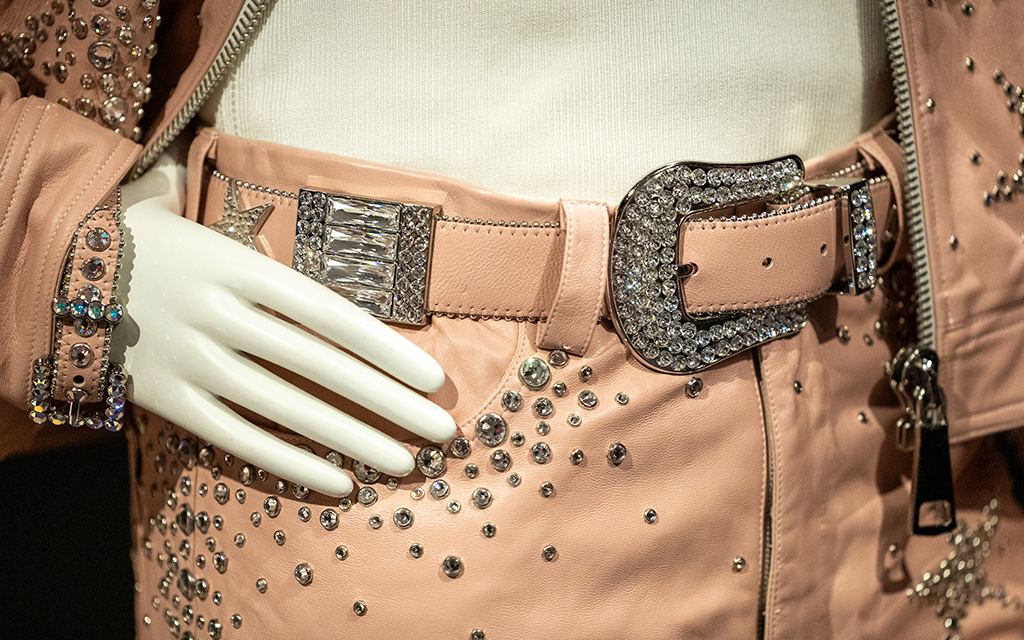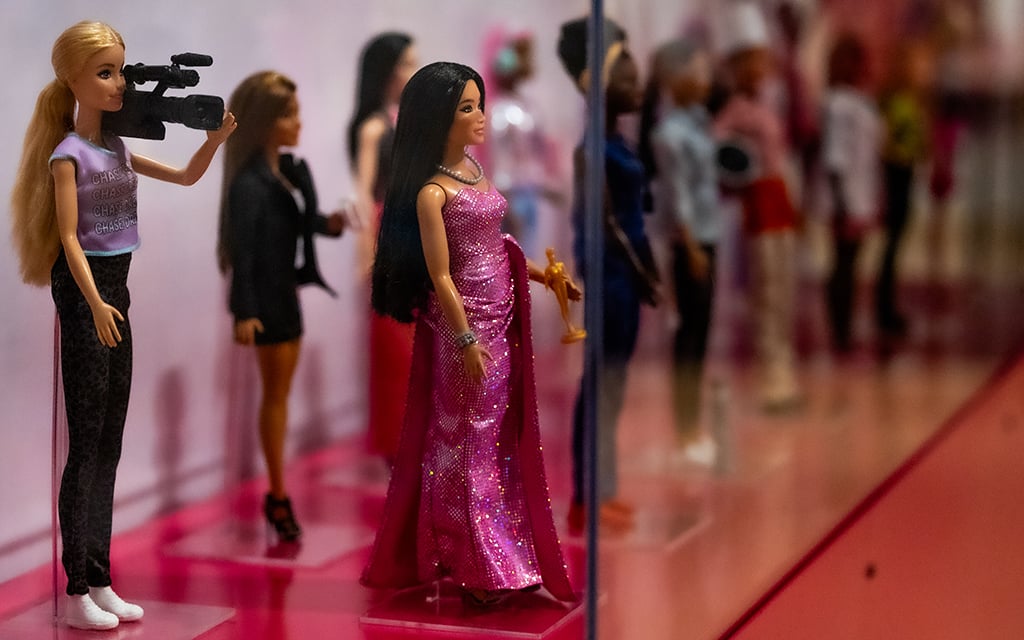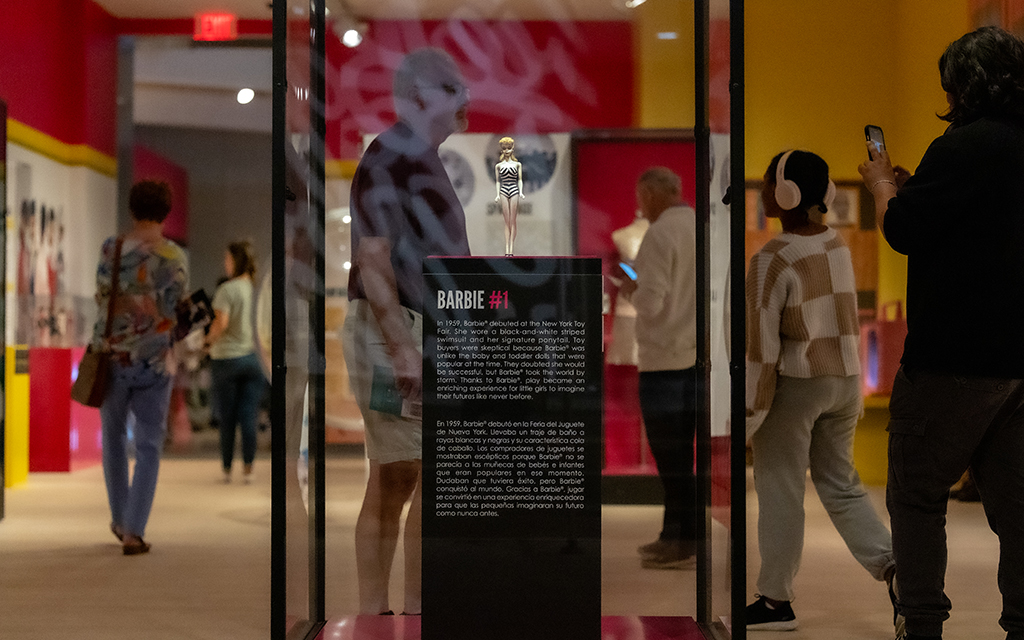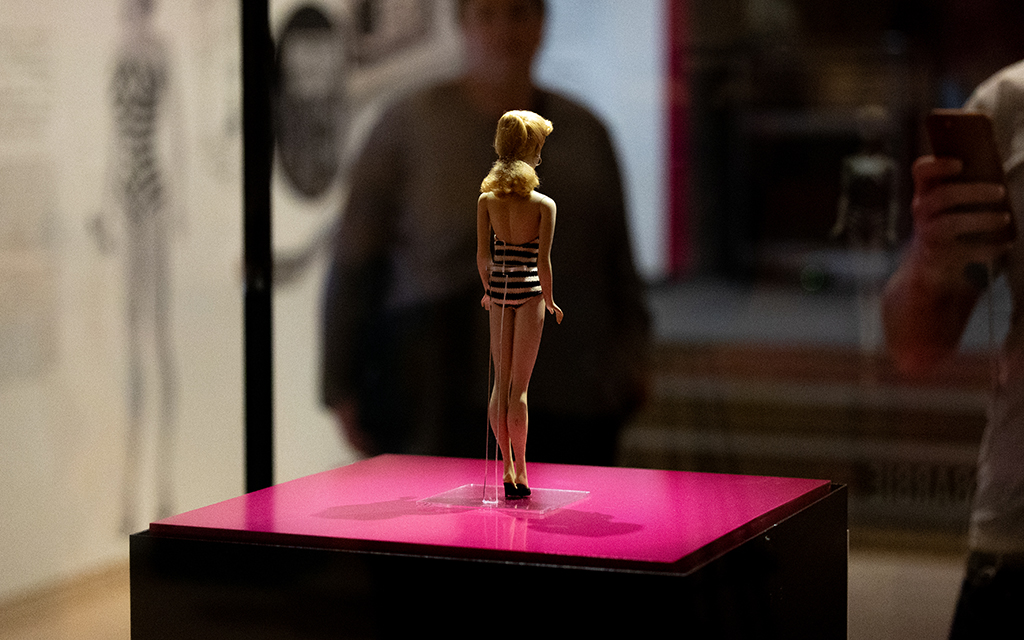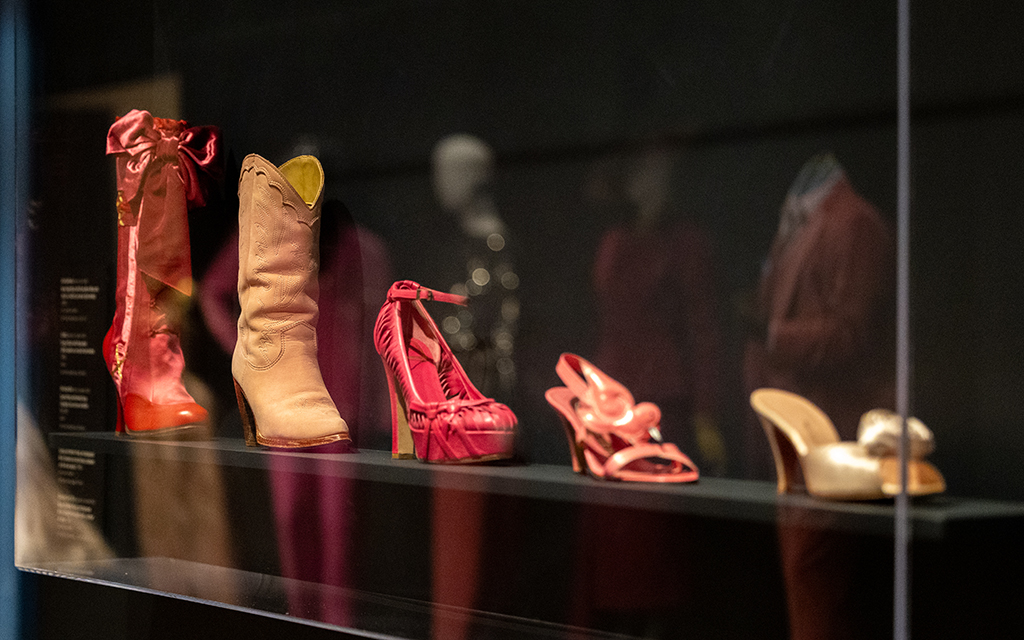PHOENIX – Despite the “Barbie” movie’s snubs at Sunday night’s Academy Awards, the doll franchise has continued to influence the current cultural climate.
Even prior to the movie’s release in 2023, Barbie has influenced fashion for decades since the doll’s launch in 1959.
Barbie both influenced and responded to cultural shifts with the introduction of the first Black Barbie, “Christie,” in 1968 and the creation of career Barbies, in which she took on over 250 careers, according to History.com. The doll reflected pivotal moments in the fashion industry through collaborations with designers such as Bob Mackie who created custom collectible Barbie doll looks, such as the Cher Barbies, according to The Hollywood Reporter.
Phoenix Art Museum has a current exhibit representing Barbie’s impressive collection and history in partnership with Illusion Projects and Mattel.
The museum received collections of Barbies from private collector David Porcello and Mattel for the “Barbie: A Cultural Icon” exhibition, which is open until July 7.
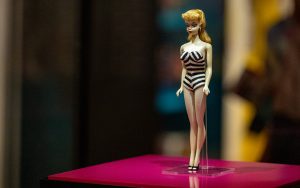
The “Barbie: A Cultural Icon” exhibition at the Phoenix Art Museum opens with a display of one of the first Barbie dolls. The first Barbie debuted in 1959. Photo taken in Phoenix on Feb. 21, 2024. (Photo by Emily Mai/Cronkite News)
“We are the first art museum to host ‘Barbie: A Cultural Icon,’” said Helen Jean, who is the Jacquie Dorrance Curator of Fashion Design at Phoenix Art Museum.
The exhibit is featured in conjunction with “The Power of Pink,” an exhibit celebrating the color pink’s complex history.
“This was our chance to draw some pieces from our collection that celebrate 200 years of fashionable representations of pink,” Jean said.
Pink has been the epitome of the Barbie brand, sparking collaborations with companies from retail to housewares, and the more recent trend of “Barbiecore.”
“It’s clean, classic, hyperfeminine. You have lace detailing, you have florals. You just have these elements that it just feels Barbie,” said Danielle Testa, assistant professor at Arizona State University FIDM.
Walking through the exhibit is like taking a tour through a Barbie Dreamhouse. A seemingly endless array of Barbies spanning every decade are highlighted against pink walls as visitors walk through the timeline of Barbie’s evolution.
“It’s these moments of creative ingenuity and challenging problem solving where we see artists, engineers, designers coming together and creating a product that has lasted generations, has been an exciting encyclopedic history of fashion,” Jean said.
Life-sized Barbie boxes set up in pink and blue and a full-scale pink convertible give visitors a chance to capture themselves in the Barbie world of the exhibit.
Jean said the idea behind the exhibit’s construction and layout was to start a conversation on Barbie’s relationship to the fashion industry looking at both current and past trends.
Though work on the exhibit was initiated prior to the “Barbie” movie’s release, the box-office success set the right tone for the exhibit’s opening on Valentine’s Day.
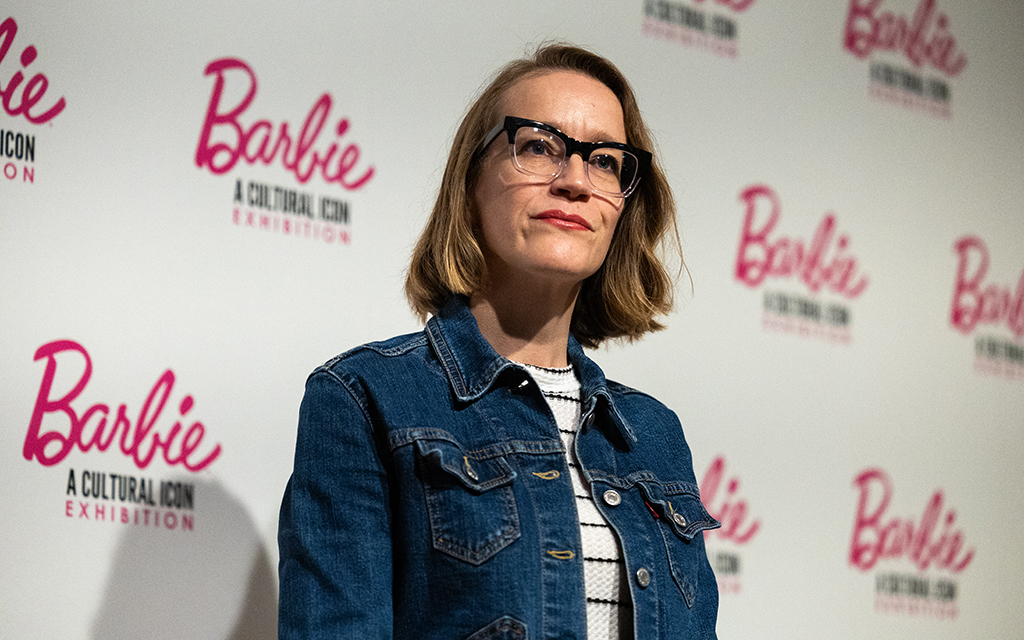
The “Barbie: A Cultural Icon” exhibition’s presentation at the Phoenix Art Museum is coordinated by Helen Jean, the Jacquie Dorrance Curator of Fashion Design at Phoenix Art Museum. Photo taken in Phoenix on Feb. 21, 2024. (Photo by Emily Mai/Cronkite News)
“Because of the success of the film, we felt that the public was in the right stage of mind to have conversations about Barbie and her seriousness and what she means as a part of our material culture and her involvement in our fashion industry,” Jean said.
Testa said the movie highlighted women’s ability to be both feminine and empowered. But the film industry may still be grappling with that idea, as many fans claim the female director and lead actress have been snubbed in awards shows.
“It is both frustrating and unsurprising. I think that this is the kind of thing that happens,” said Aviva Dove-Viebahn, assistant professor in film and media studies at ASU. “They (female directors) still have a kind of uphill battle, in terms of their place in Hollywood.”
In recent years there has been a certain level of tokenism in Hollywood, evident in awards like the Oscars. Categories will feature one or two women or persons of color to create the idea of inclusivity, though few of them have won significant awards, Dove-Viebahn said.
According to a USC Annenberg Inclusion Initiative study, from 1929-2024 only 17% of nominees for the Academy Awards have been women, with less than 2% of them being women of color.
Though “Barbie” barely made a mark at this year’s Oscars, the movie and Mattel franchise has influenced current fashion and left a cultural mark.

